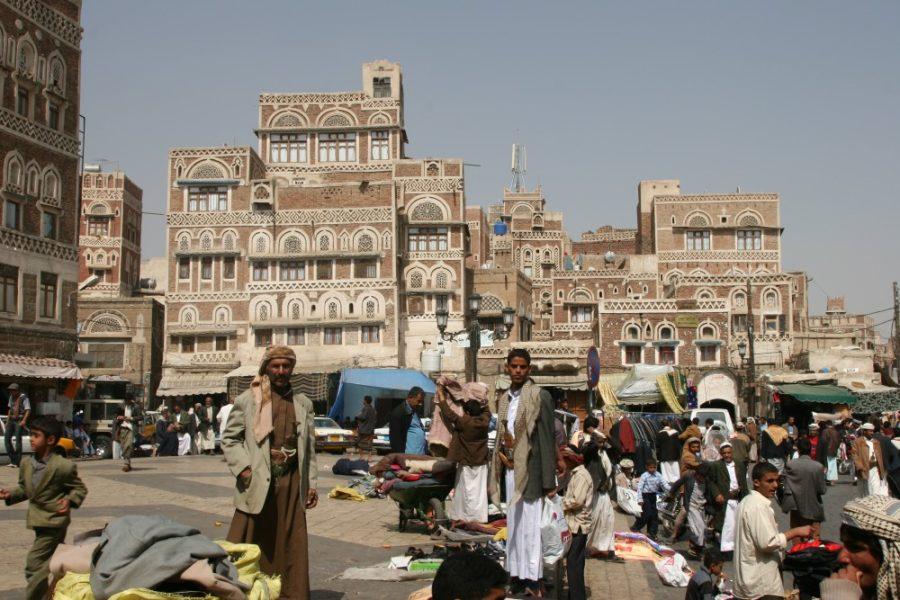With the recapture of Mosul by Iraqi forces the fight against ISIS is one step closer to a final standoff in Raqqa.
As a result, public consciousness is shifting from ISIS to civil wars in Libya, Syria and Yemen — and to questions of Kurdish separatism.
Without a doubt, the most devastating and under-covered of these Middle East conflicts is the two-year-old civil war in Yemen.
Even before the conflict, 50 percent of Yemenis lived in poverty, making it the poorest country in the Arab world.
The recent complete breakdown in civil infrastructure has unleashed the worst cholera outbreak in the world, bringing to its knees a people already facing famine, death and fragmentation.
Accusations of war crimes in the humanitarian disaster of Yemen continue to mount and implicate governments as far away as the United States and Europe.
RELATED: News Fast Five: Syrian Civil War
1. The war began with tensions between the Shia and Sunni sects of Islam
Ever since the unification of North and South Yemen in 1990, shifting political alliances, sectarianism and regional uprisings have become commonplace. Today’s civil war is no different.
After multiple rebellions by Houthis militia, belonging to the minority Zaidi sect of Shia Islam in the country’s northwest, former authoritarian President Ali Abdullah Saleh resigned in 2012, passing power to his deputy Abdrabbuh Mansur Hadi.
Bowing to pressure from the World Bank, Hadi reduced fuel subsidies leading to national protests in 2014. Houthis militias used this opportunity to occupy the capital of Sana’a sidelining the little power Hadi had been able to accumulate. Military forces still loyal to Saleh sided with the Houthis, who claimed to want to install a democratic government which respected minority rights.
forces advanced south, the country’s majority Sunni population became wary of the new government declared in Sana’a. Hadi was forced to flee the country as the fighting intensified.

2. The conflict has become a proxy war between Iran and Saudi Arabia
Fearing Iranian arms shipments to Houthis militias on its border, Saudi Arabia, with a coalition of Arab states, began a military air and ground campaign in support of government forces loyal to Hadi and Sunni militias in the southeast.
The campaign, spearheaded by now crown-prince Mohammed bin Salman, stopped the Houthis advance before the port city of Aden, which become the government’s de-facto capital when Hadi returned from exile in 2015.
The Saudi goal to recapture the capital at Sana’a remains elusive as the war has reached a stalemate amidst continued airstrikes, Saudi blockage and Houthis shelling Saudi Arabia.
With the lifting of U.S. sanctions following the Iran Nuclear Deal, Iran strives to gain greater regional influence in Lebanon, Iraq, Syria and Yemen.
Alongside religious differences, Saudi Arabia perceives Iran as the greater threat to its regional hegemony and sees its desire to export populist, religious revolution as the greatest threat to its monarchy.
Saudi Arabia and Iran have waged a number of proxy conflicts like the one in Yemen through their support of regional militias and terrorist organizations.
RELATED: ‘I don’t have a place in my heart for Somalia right now’
3. The United States has economic and political interest in the war
The United States has three main interests in the war in Yemen:
Maintain its long-standing alliance with Saudi Arabia
Ensure access to Bab-al-Mandeb, the passage between the Arabian and Red Seas, which transits 4.7 million barrels of oil per day
Weaken a dangerous al-Qaeda sect in the Arabian Peninsula
Taking advantage of the chaos, al-Qaeda allied itself with Sunni militias and expanded its territory along Yemen’s southern coast.
Without an ally in Sana’a, U.S. counter-terrorism operations against al-Qaeda and ISIS affiliates in the region have been hampered.
Saudi Arabia offered stability when it leaned upon U.S. military training personnel and weapons sales to fuel its foray into Yemen.
After widespread bombing of civilian targets and infrastructure by the Saudi air force, the Obama administration, fearing to assist in war crimes, issued a no-target list to the Saudis.
The Saudis continued to facilitate potential war crimes leading to the Obama administration to halt weapons sales to the country, a policy the Trump administration has reversed.
4. More than 10,000 Yemeni civilians have been killed by bombing and fighting so far
A majority of the casualties comes from Saudi airstrikes.
According to the United Nations, both sides have targeted civilians,have engaged in targeting civilians and war crimes.
In a country that imported 90 percent of its food before the war, the heavily damaged Houthis Hodeidah port cannot support the needs of the population. More than 17 million Yemenis, in a country of 27 million, do not know where their next meal will come from.
More than 3 million children are malnourished, 2 million civilians are internally displaced, 14.4 million lack access to clean drinking water and a majority lack access to health care.
Days after sanitation infrastructure ceased to function, cholera began spreading through Yemen’s major cities.
In the first three months of the epidemic, there were 360,000 suspected cases of cholera and more than 2,000 deaths.
Humanitarian assistance has been unable to reach and support many Yemenis due to the conflict.
5. Attempts to end the war have been unsuccessful
Talks of secession and a two-state solution are extremely likely, but for the most part remote possibilities.
With an ever more devastated economy and infrastructure, any post-conflict government will have little resources to address the health and nutritional crisis of the Yemeni people as well as contend with terrorists and militias unwilling to give up arms.
As long as Saudi Arabia and Iran continue to militarize the region, a resolution to the conflict remains remote.
A first step to ending the horrendous human suffering in the region can come from the U.S., France, the UK and others providing weapons and support to Saudi Arabia.
Pressure from the UN for a peaceful resolution continues alongside their solicitation of international funds for humanitarian aid and the ability to safely assist the Yemeni people on the edge of collapse.
Follow Randall Eck on Twitter.












